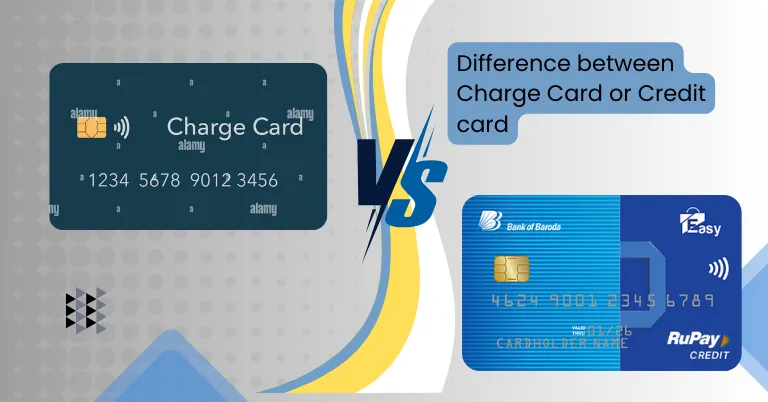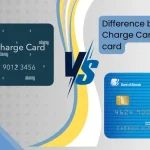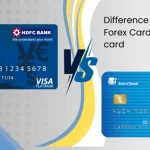Knowledge of personal finance would require one to know the difference between different kinds of financial tools. Among the most commonly available and known credit cards, there are two of the most used payment cards: charge cards and credit cards. Charge cards and credit cards look similar on the surface but have many characteristic differences among themselves that could have a significant impact on your financial management.
This article explains the differences between a charge card vs credit card so that you can make the right decision based on your goal or requirement.
What Is a Charge Card?
A charge card is a kind of payment card that allows you to make purchases without the use of cash. This, however, differs from a credit card as it works on particular terms and conditions.
Key Features of a Charge Card:
- No Pre-set Spending Limit
Charge cards don’t have a set spending limit. This makes it easy for those who have good credit to make more purchases than with credit cards. However, this isn’t without bound because the card issuer checks on your payment history and spending behavior. - Full Balance Payment Required Monthly
A critical feature of charge cards is the requirement to pay off your balance in full each month. Carrying a balance is not an option, and failure to clear the dues can lead to hefty late fees and restrictions. - No Interest Charges
Since balances must be cleared monthly, charge cards do not incur interest rates, making them a suitable choice for those who wish to avoid debt accumulation. - Rewards and Perks
Many credit cards have reward programs, such as points or cashback, which encourage spending. Rewards can be like those for credit cards.
What Is a Credit Card?
A credit card is a popular financial product that allows its users to borrow money up to a certain amount. It offers more repayment flexibility but has its own rules and costs. There are a lo0t of banks who provide credit card services. For example HDFC Bank credit card, Axis Bank credit card, etc.
Key Features of a Credit Card:
- Pre-set Spending Limit
Each credit card has a spending limit, which will depend on your creditworthiness, income, and financial history. This limit limits the amount that you can borrow. - Option to Carry a Balance
Unlike charge cards, credit cards allow you to carry a balance from one month to another. However, unpaid balances attract interest. - Interest Rates (APR)
Credit cards have an Annual Percentage Rate (APR). If you do not clear the full amount outstanding, it accrues interest on the outstanding balance, which is relatively high in most cases. - Rewards and Benefits
Credit cards are known for rewards programs such as cashback, travel points, and discounts. All these are intended to encourage you to spend more and increase loyalty to their customers.
Pros and Cons of Charge Cards
Pros:
- No Interest Charges
You save a lot of money since it attracts no interest if paid in full before the due date. - Flexible Spending
You enjoy higher purchasing power since there is no pre-set spending limit. This makes it a better card for those well disciplined to restrain from overspending. - Encourages Financial Discipline
The existence of a full payment requirement means that there is delayed overspending and entails sound financial discipline.
Cons:
- Stringent Payment Terms
One may experience difficulties in paying the cash withheld in full in instances of low cash position. - High Fees for Late Payments
Failing to pay on time results in steep penalties.
Pros and Cons of Credit Cards
Pros:
- Flexibility to Carry a Balance
Such credit cards offer the facility of repayment such that people can manage their cash flows at any moment during emergency times. - Builds Credit History
Credit cards improve the credit history in case they are used responsibly, and then securing loans become easier. - Rewards and Cashback
Most of the credit cards offer highly rewarding programs, including cash back on purchases, travel points, and exclusive offers.
Cons:
- Interest Charges
Accumulation of interest charges is inevitable if balance is carried since this arises without much control in advance. - Spending Limits
Fixed credit limits are of little use to big spenders.
Choosing Between a Charge Card and a Credit Card
A charge card and a credit card should both be employed according to your spending behavior, your financial goals, and your habits while repaying.
When to Choose a Charge Card:
- You Can Pay in Full Each Month:
If you can regularly pay off your balances, then you will be able to save yourself from paying interest by using a charge card. - You Value Spending Flexibility:
Charge cards are best suited for those who do not want pre-set spending limits and have a good credit history. - You Want to Avoid Debt:
Because you cannot carry a balance, the chances of getting into debt traps are lower.
When to Choose a Credit Card:
- You Need Payment Flexibility:
Credit cards let you pay for purchases over time, which can ease expenses during emergencies. - You Aim to Build Credit History:
The frequent and responsible usage of a credit card can help you build a good credit score. - You Want Rewards:
Most credit cards have attractive reward programs such as cashback, miles, and discounts.
Real-Life Example: Choosing the Airtel Axis Bank Credit Card
If you are looking for a credit card, then the Airtel Axis Bank Credit Card is a good option. Through this credit card, the following benefits are provided:
- 25% cashback on Airtel recharges
- 10% cashback on utility bill payments
- Annual savings of up to ₹16,000
- Competitive interest rates starting at 11.5%
This card balances flexible payment options with great rewards, making it a convenient choice for value hunters.
Conclusion
Charge cards and credit cards have very distinctive features and benefits. They are best suited to those who can pay in full at the end of every month and like having more flexible spending limits. Anyone else who requires flexibility in repayments, rewards, and opportunities to build up their credit score should use a credit card instead. With this in mind, you can align what’s best for your financial habits and then choose the card that best supports your goals.
FAQs on Charge Card vs Credit Card
Q1. Can I use a charge card everywhere a credit card is accepted?
Ans. Charge cards are very widely accepted. But always inquire from the merchant if unsure.
Q2. What happens if I don’t pay my charge card balance in full?
Ans. You will be charged high late payment fees and may have usage restrictions.
Q3. Do charge cards offer rewards?
Ans. Yes, many charge cards offer rewards such as cashback, points, or miles on purchases.
Q4. Which is better for building credit: a charge card or a credit card?
Ans. Both can be used in building credit, but, through frequent reporting to the bureaus, credit cards tend to be more frequently used than a charge card.






